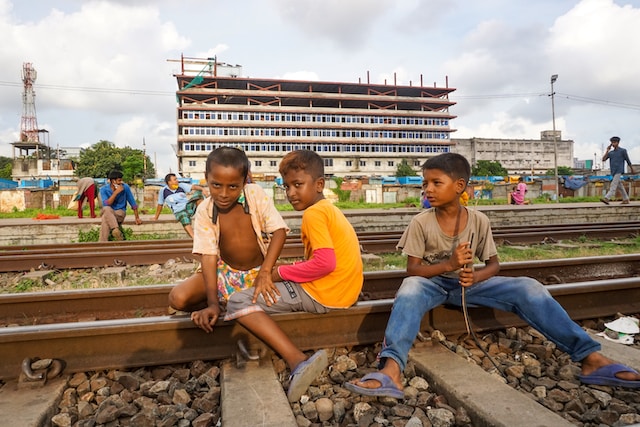Recent years have seen a visible and alarming rise in communal attacks on religious minorities in Bangladesh. Much of this has been because of perceived religious offence, commonly covered by the term ‘blasphemy’ in law and public discourse. Gargi Das Chomok and Saurov Dash Roni examine the Digital Security Act 2018, and how this may have increased misperceptions of blasphemy through non-specific terminology, and increased powers of detention to authorities.
The Constitution of the People’s Republic of Bangladesh ensures Freedom of Expression (Article 39) and Freedom of Religion (Article 41) as Fundamental Rights. Bangladesh also has an obligation to safeguard these rights under several international covenants such as the UNHCR, ICCPR (1966) and ICESCR (1966). Yet, the country has incorporated punishments for blasphemy under 2 Statutes: the inherited colonial Penal Code (1860) to deal with blasphemy in general, and the Digital Security Act 2018 (DSA) to deal with blasphemy in the digital sphere.
With the enactment of the DSA (under Section 61 of the Act), the Information and Technology Act 2006 (Section 57) — which has already placed severe restrictions on free speech — was repealed by the Parliament following demands from stakeholders of the DSA, though the core elements Section 57 remain in various provisions of the DSA. In fact, they have been reaffirmed further in various ways.
*
The provision of blasphemy is incorporated under Section 28 of the DSA which criminalises the publication of any content on digital platforms that may hurt religious sentiments. Apart from the ambiguous phrase ‘hurt religious sentiments’, DSA goes further than the earlier Penal Code of 1860: while blasphemy is a non-cognisable offence earlier, the DSA gives the police unfettered power to arrest a citizen on the basis of suspicion alone by specifying blasphemy as a cognisable and non-bailable offence under Section 53. The punishment for such an offence is 5 years imprisonment, which is 3 years more than the punishment provided for blasphemy in the Penal Code.
These new provisions — the wide-angled interpretation of the offence and additional, seemingly unreasonable, punishment — fail to pass the ICCPR three-part test, even if the DSA pursues a legitimate aim. Nonetheless, since the enforcement of the DSA, people are being arrested and facing disproportionate punishment for merely expressing non-linear views, on the mere conjecture of their views being blasphemous.
*
It is well known that countries with blasphemy laws tend to face more communal violence than countries without any such laws; for instance, blasphemy cases have accelerated in Pakistan as a result of stiffer laws on blasphemy; in Bangladesh itself, the killing of bloggers, frequent vandalisation of temples and the communal violence in Cumilla (2021) and Narial (2022) are a result of religious extremism based on accusations of blasphemy.
Another concern about the DSA is that in most cases, the enforcement of the law has resulted in the protection of the religious sentiment of one community (the majority Muslims) and the prosecution of minorities (mainly Hindus and Buddhists). The violent incidents (including the ones mentioned earlier) are based on spurious accusations of hurting religious sentiments: two Hindu teachers were ridiculed and detained under the blasphemy laws in Narail (in a separate incident in 2022) and Munshiganj (2022), but in contrast, no action was taken against the alims (theologians) who openly ridiculed minor communities in waz mahfils (2020).
Moreover, since no significant action had been taken to secure the safety of Hindus in earlier years, similar violent actions were repeated in 2022 when attackers burnt and destroyed homes and shops of Hindus.
*
In a country with visibly rising religious fundamentalism, blasphemy laws only expand the realms of oppression of minorities. Reports reveal that the numerical percentage of minority communities in Bangladesh is decreasing drastically each year. Also, one wonders if secularism can be truly sustained in a state where the Constitution itself declares a state religion (in this case, Islam), and any possibility, either of judicial or legislative nature, of amending this provision is curtailed by the insertion of Article 7(B) to the Constitution. This Article is the result of the 15th Amendment to the Constitution of Bangladesh which seems to be inspired by the ‘Basic Feature Doctrine’ in the Anwar Hossain Chowdhury vs Bangladesh Case 1989 (known commonly as the Eighth Amendment Case).
The cumulative impact of these constitutional/legal provisions is that Islam is given an apparently perpetual special status, and made more equal than the others. Relying on this special status, even constructive or academic criticism of Islam in the public sphere may be considered offensive, and hurting religious sentiments under Section 28 of the DSA.
Recently, there has been discussion of replacing the DSA with a ‘Cyber Security Act’ which will modify some of the more repressive provisions of the DSA. Although it is not yet known whether there will be any alteration to the controversial blasphemy provisions, one hopes these adverse laws will be repealed and measures for protecting the rights of minorities will be taken, otherwise Bangladesh may become a land of one religion, with its leftover minorities being ghettoised and treated as pariahs.
*
The views expressed here are those of the authors and do not represent the views of the ‘South Asia @ LSE’ blog, the LSE South Asia Centre or the London School of Economics and Political Science. Please click here for our Comments Policy.
This blogpost may not be reposted by anyone without prior written consent of LSE South Asia Centre; please e-mail southasia@lse.ac.uk for permission.
Banner image © Neha Maheen Mahfin, ‘Traditional Hindu Bride’, Rangpur, Bangladesh, 2023, Unsplash.
*







